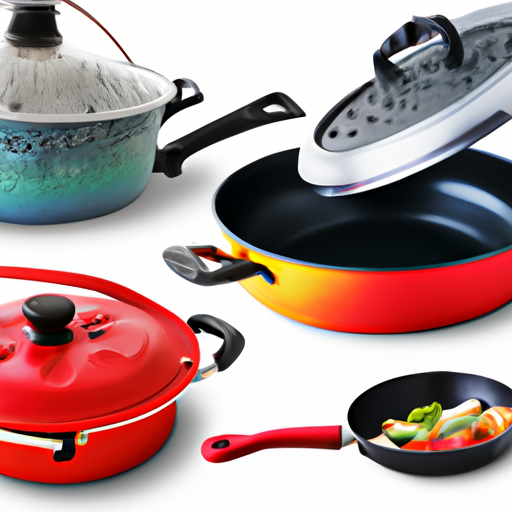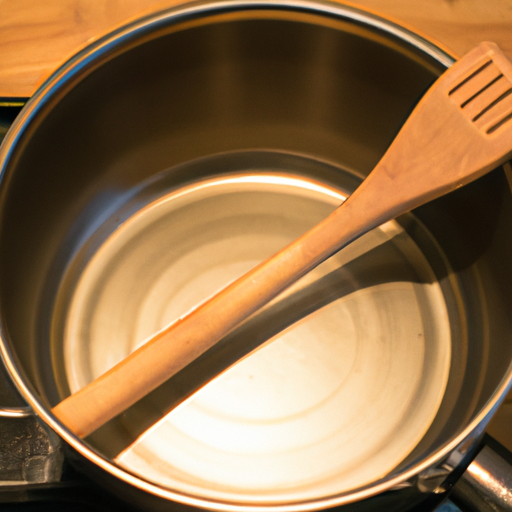JohnCookingMaster
These tips are really helpful for someone like me who loves cooking. I learned a lot about choosing and maintaining cookware.

When it comes to cookware, there are various materials to choose from, each with its own advantages and disadvantages. Common cookware materials include stainless steel, cast iron, non-stick, and copper. Stainless steel is durable and resistant to rust and staining, making it a popular choice for many home cooks. Cast iron is known for its excellent heat retention and even cooking, but it requires regular seasoning to maintain its non-stick properties. Non-stick cookware is convenient for low-fat cooking and easy cleanup, but it may not be suitable for high-heat cooking. Copper cookware offers excellent heat conductivity, but it requires careful maintenance to prevent tarnishing.
When selecting cookware, consider your cooking style and the types of dishes you frequently prepare. If you enjoy searing meats and achieving a perfect crust, a stainless steel or cast iron skillet is a great choice. For delicate sauces and precise temperature control, a copper saucepan may be ideal. Non-stick pans are excellent for low-fat cooking and easy cleanup, but they may not be suitable for high-heat cooking or metal utensils. Assess your cooking needs and invest in cookware that complements your style.
To prolong the lifespan of your cookware and ensure optimal performance, proper maintenance is crucial. Avoid using metal utensilson non-stick pans to prevent scratching the surface. Instead, opt for silicone, wood, or plastic utensils. When cleaning your cookware, follow the manufacturer's instructions. Some cookware is dishwasher safe, while others require handwashing. Avoid using abrasive cleaners or steel wool, as they can damage the finish of your cookware. Regularly check for any signs of wear or damage, such as loose handles or warped bottoms, and replace any compromised cookware to ensure safety in the kitchen.
Proper storage of your cookware can help prevent scratches, dents, and other damage. If possible, store your pots and pans with lids on to protect the surfaces. For non-stick pans, place a soft cloth or paper towel between each pan to prevent scratching. Consider using pot racks, hanging hooks, or stackable organizers to maximize storage space and keep your cookware easily accessible. Avoid stacking heavy pots and pans on top of each other, as this can cause damage over time. With proper storage, you can extend the lifespan of your cookware and keep your kitchen organized.
As you gain more experience in the kitchen and refine your cooking skills, you may find the need to upgrade your cookware. Investing in high-quality pieces can enhance your cooking experience and provide better results. Consider adding specialized cookware such as a Dutch oven, a roasting pan, or a wok to expand your culinary repertoire. When upgrading, look for cookware that offers superior heat distribution, ergonomic handles, and durable construction. With the right cookware, you can take your cooking to the next level and enjoy the process even more.

| Cookware Material | Advantages | Disadvantages |
|---|---|---|
| Stainless Steel | Durable, resistant to rust and staining | May not distribute heat evenly |
| Cast Iron | Excellent heat retention, even cooking | Requires regular seasoning |
| Non-stick | Convenient for low-fat cooking, easy cleanup | Not suitable for high-heat cooking |
| Copper | Excellent heat conductivity | Requires careful maintenance to prevent tarnishing |
By understanding the different cookware materials, choosing the right cookware for your cooking style, practicing proper maintenance, storing your cookware properly, and considering upgrades over time, you can make the most of your kitchen essentials. Take care of your cookware, and it will reward you with delicious meals for years to come.
JohnCookingMaster
These tips are really helpful for someone like me who loves cooking. I learned a lot about choosing and maintaining cookware.
FoodieForever
I'm so glad I came across this article. It's packed with valuable information that every home cook should know. Highly recommended!
KitchenNovice
As someone who is just starting out in the kitchen, these tips are a great starting point. I feel more confident in selecting the right cookware now.
MasterChefPro
Daniya Brown really knows her stuff!Her expertise shines through in this article, and I appreciate the practical tips she provides.
HealthyCookingFan
I enjoyed reading this article. It's well-written and provides valuable insights into cookware selection and maintenance. I'll be referring back to it whenever I need guidance.
|
|
Daniya Brown is a culinary expert with years of experience in the field. She has a passion for cooking and loves sharing her knowledge and tips with others. Through her extensive research and hands-on experience, Daniya has become an expert inthe field of cookware selection and maintenance. Her expertise has helped countless individuals enhance their cooking experience and make informed decisions when it comes to choosing the right kitchen essentials. |